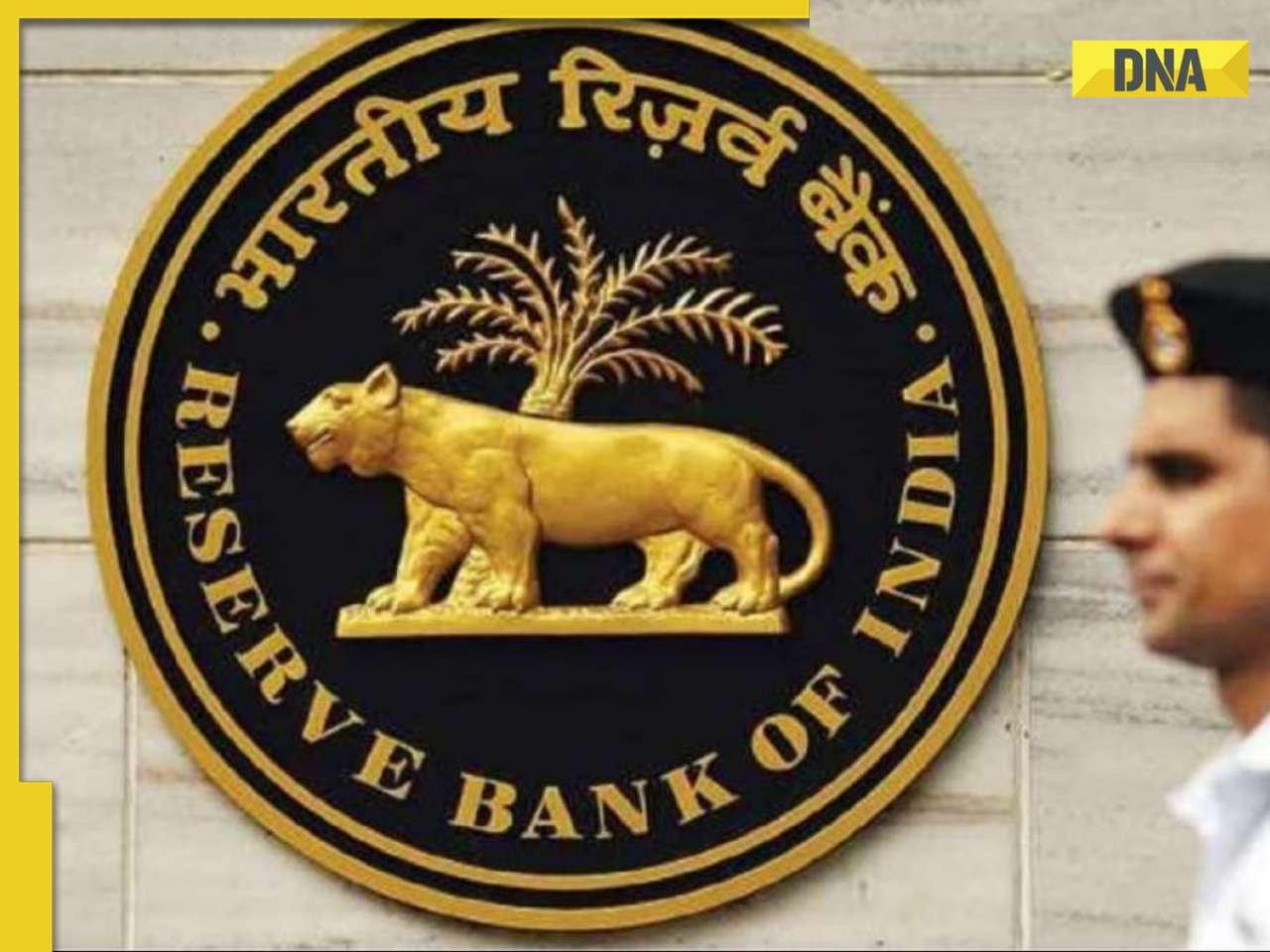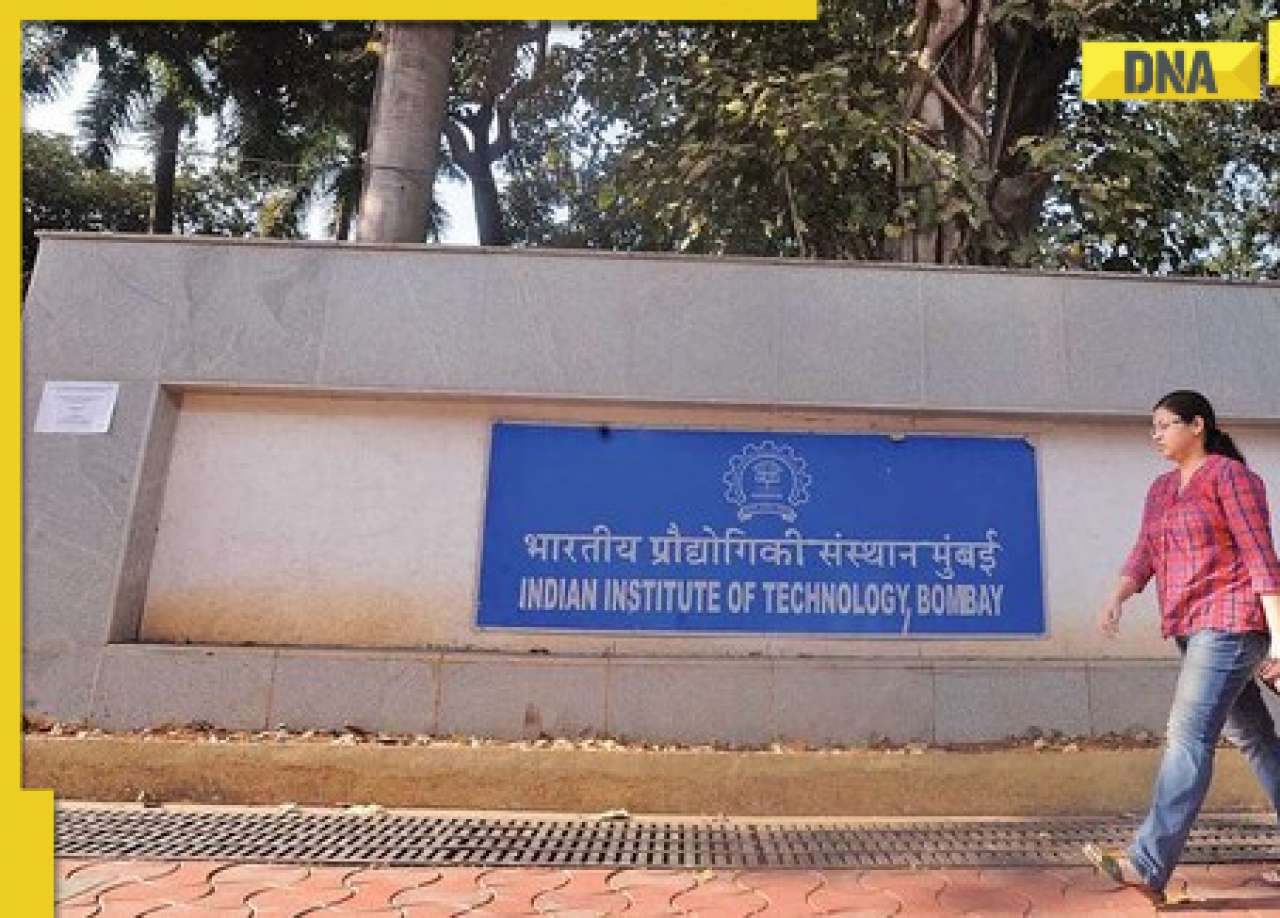Bloodbath likely as stocks on Wall Street plummet
WASHINGTON: US stocks plunged on Monday as the House of Representatives defeated a $700 billion emergency rescue package, while, earlier in the day, European governments had to step in with a flurry of major bank bailouts from Iceland to Germany as fear and turmoil from the US credit crisis spread through the financial system.
Stocks plummeted on Wall Street even before the 228 to 205 vote to reject the bill was announced on the House floor ignoring urgent pleas from President George W. Bush and bipartisan congressional leaders to quickly bail out the staggering US financial industry.
The Dow Jones Industrial Average plunged nearly 700 points when it looked like rejection was likely, but recovered 200 points as the arm-twisting continued. After confirmation that the bailout legislation was rejected on a 228-205 vote, the Dow Jones Industrial Average of blue chips plummeted 472.71 points (4.24 per cent) to 10,670.42 around 1817 GMT. The Nasdaq tumbled 140.40 points (6.43 per cent) to 2,042.94 .
Even as US lawmakers were preparing to vote on a massive US$700 billion (Rs3,290,000 crore, at Rs 47 to the $) rescue of their own banks, the governments of Belgium, the Netherlands and Luxembourg took partial control late on Sunday of struggling bank Fortis NV, while Britain seized control of mortgage lender Bradford & Bingley early on Monday.
Germany organised a credit lifeline for blue chip commercial real estate lender Hypo Real Estate Holding AG, while Iceland’s government took over Glitnir bank, the country’s third largest.
The European bailouts were followed by news that US financial giant Citigroup Inc was acquiring the banking operations of troubled Wachovia Corp. Citigroup will absorb losses of up to $42 billion in a government-facilitated takeover.
As the old global financial system looked set to implode, French president Nicolas Sarkozy said France would be hosting a meeting of senior European officials to prepare a global summit on “a new international financial system.”
“I confirm my call for a summit in the coming weeks to establish the basis of a new international financial system,” the French leader said at a press conference at the EU-Indian summit in the city of Marseilles.
European and US shares fell heavily and the money markets remained frozen with banks refusing to lend to each other for all but the shortest periods. “All banks are having difficulty with long-term loans and short-term financing. It’s difficult to say which could be affected,” said UniCredit economist Alexander Koch in Munich. “Despite the rescue packages in the US (and Europe) that don’t fully correct the problem. I see the problem flowing until late next year,” he added.
Shares in Fortis, Belgium’s largest retail bank, continued to fall on Monday after Belgium, the Netherlands and Luxembourg agreed to an €11.2 billion ($6.4 billion) bailout package late on Sunday to avert a run on the bank. The three governments took a 49% stake in exchange and demanded Fortis sell the stake it had bought in ABN Amro a year ago for €24 billion — a move that many analysts believe started its troubles.
The bailout was meant to restore confidence in the bank before the reopening of markets on Monday after a tumultuous week of imploding share values at Fortis. There was little likelihood of that, however, amid news of other European rescue packages and investor skepticism about the effectiveness of a tentative deal in Washington on plan to buy bank’s bad assets and stabilise the financial system.
In Britain, the government nationalised its second bank this year, taking over Bradford & Bingley’s £50 billion ($91 billion) mortgage and loan books and paid out £18 billion to facilitate the sale of its savings business, including its entire retail branch network, to Spain’s Banco Santander.
“We will do whatever it takes to ensure the stability of the British financial system,”
British prime minister Gordon Brown told reporters. “We will continue to do whatever is necessary over the next few days in very difficult times, in turbulent times throughout the world, to ensure that British financial stability is maintained.”
Santander, the second largest bank in Europe, said it will pay £612 million for Bradford & Bingley’s 197 branches and £20 billion of deposits.
Britain earlier this year nationalised Northern Rock, but not until after the mortgage lender suffered a damaging run on its deposits by spooked customers and is keen to move quicker to avert any repeat of that situation.
The biggest US bailout in history, which went to the US Congress for a vote on Monday and was due to be sent to the Senate later in the week, would give the administration broad power to use taxpayers’ money to purchase billions of home mortgage-related assets held by cash-starved financial firms. A decision to break up the total amount into smaller stages may have limited its effectiveness in reassuring markets, one analyst said.
“The fact the funds won’t be released in one lot but instead a series of tranches is certainly detracting from its appeal and this, combined with the very visible scars of the credit squeeze, will again weigh on sentiment,” said Matt Buckland, a dealer at CMC Markets.
In Iceland, the government took control of Glitnir bank, the country’s third largest, buying a 75% stake for €600 million ($878 million) in a move it said was to ensure broader market stability.
Central Bank of Iceland chairman David Oddsson said that Glitnir, which has operations in 10 countries, would have collapsed if the authorities had not intervened.
In Germany, Hypo Real Estate Holding AG became the first German blue chip company to seek a bailout in the global financial crisis, securing a line of credit of up to €35 billion ($51.2 billion) aimed at shielding Germany’s No. 2 commercial property lender as the meltdown expanded in Europe.
The government’s finance ministry said it provided the hefty credit in a consortium with several other banks, though it did not identify them. It said that none of the banks were foreign.
![submenu-img]() Viral video: Woman tries to cook omelette on road, internet is not happy
Viral video: Woman tries to cook omelette on road, internet is not happy![submenu-img]() RCB cancels practice, press meet after threat to Virat Kohli's security ahead of IPL 2024 eliminator: Report
RCB cancels practice, press meet after threat to Virat Kohli's security ahead of IPL 2024 eliminator: Report ![submenu-img]() Meet Indian-origin man, IIT alumnus who is world's second-highest paid CEO, his salary per day is...
Meet Indian-origin man, IIT alumnus who is world's second-highest paid CEO, his salary per day is...![submenu-img]() RBI approves Rs 2.11 lakh crore dividend payout to Indian govt for 2023-24
RBI approves Rs 2.11 lakh crore dividend payout to Indian govt for 2023-24![submenu-img]() Mozz Guard Mosquito Zapper Reviews (Zap Guardian): Side effects, ingredients benefits, price
Mozz Guard Mosquito Zapper Reviews (Zap Guardian): Side effects, ingredients benefits, price![submenu-img]() IIT graduate builds Rs 1057990000000 company, leaves to get a job, now working as a….
IIT graduate builds Rs 1057990000000 company, leaves to get a job, now working as a….![submenu-img]() Indian Air Force Agniveervayu Recruitment 2024: Registration starts today, know eligibility, steps to apply
Indian Air Force Agniveervayu Recruitment 2024: Registration starts today, know eligibility, steps to apply![submenu-img]() Meet woman who was married at 16, faced domestic abuse, did odd jobs as single mom, became IAS officer, is posted at...
Meet woman who was married at 16, faced domestic abuse, did odd jobs as single mom, became IAS officer, is posted at...![submenu-img]() Maharashtra HSC 12th 2024: Result declared, know how to check
Maharashtra HSC 12th 2024: Result declared, know how to check![submenu-img]() Meet man who topped IIT-JEE, studied at IIT Bombay, then went to MIT, now is...
Meet man who topped IIT-JEE, studied at IIT Bombay, then went to MIT, now is...![submenu-img]() DNA Verified: Is CAA an anti-Muslim law? Centre terms news report as 'misleading'
DNA Verified: Is CAA an anti-Muslim law? Centre terms news report as 'misleading'![submenu-img]() DNA Verified: Lok Sabha Elections 2024 to be held on April 19? Know truth behind viral message
DNA Verified: Lok Sabha Elections 2024 to be held on April 19? Know truth behind viral message![submenu-img]() DNA Verified: Modi govt giving students free laptops under 'One Student One Laptop' scheme? Know truth here
DNA Verified: Modi govt giving students free laptops under 'One Student One Laptop' scheme? Know truth here![submenu-img]() DNA Verified: Shah Rukh Khan denies reports of his role in release of India's naval officers from Qatar
DNA Verified: Shah Rukh Khan denies reports of his role in release of India's naval officers from Qatar![submenu-img]() DNA Verified: Is govt providing Rs 1.6 lakh benefit to girls under PM Ladli Laxmi Yojana? Know truth
DNA Verified: Is govt providing Rs 1.6 lakh benefit to girls under PM Ladli Laxmi Yojana? Know truth![submenu-img]() AI models show bikini style for perfect beach holiday this summer
AI models show bikini style for perfect beach holiday this summer![submenu-img]() Laapataa Ladies actress Chhaya Kadam ditches designer clothes, wears late mother's saree, nose ring on Cannes red carpet
Laapataa Ladies actress Chhaya Kadam ditches designer clothes, wears late mother's saree, nose ring on Cannes red carpet![submenu-img]() Urvashi Rautela mesmerises in blue celestial gown, her dancing fish necklace steals the limelight at Cannes 2024
Urvashi Rautela mesmerises in blue celestial gown, her dancing fish necklace steals the limelight at Cannes 2024![submenu-img]() Kiara Advani attends Women In Cinema Gala in dramatic ensemble, netizens say 'who designs these hideous dresses'
Kiara Advani attends Women In Cinema Gala in dramatic ensemble, netizens say 'who designs these hideous dresses'![submenu-img]() Influencer Diipa Büller-Khosla looks 'drop dead gorgeous' in metallic structured dress at Cannes 2024
Influencer Diipa Büller-Khosla looks 'drop dead gorgeous' in metallic structured dress at Cannes 2024![submenu-img]() DNA Explainer: Why was Iranian president Ebrahim Raisi, killed in helicopter crash, regarded as ‘Butcher of Tehran’?
DNA Explainer: Why was Iranian president Ebrahim Raisi, killed in helicopter crash, regarded as ‘Butcher of Tehran’?![submenu-img]() DNA Explainer: Why did deceased Iranian President Ebrahim Raisi wear black turban?
DNA Explainer: Why did deceased Iranian President Ebrahim Raisi wear black turban?![submenu-img]() Iran President Ebrahim Raisi's death: Will it impact gold, oil prices and stock markets?
Iran President Ebrahim Raisi's death: Will it impact gold, oil prices and stock markets?![submenu-img]() Haryana Political Crisis: Will 3 independent MLAs support withdrawal impact the present Nayab Saini led-BJP government?
Haryana Political Crisis: Will 3 independent MLAs support withdrawal impact the present Nayab Saini led-BJP government?![submenu-img]() DNA Explainer: Why Harvey Weinstein's rape conviction was overturned, will beleaguered Hollywood mogul get out of jail?
DNA Explainer: Why Harvey Weinstein's rape conviction was overturned, will beleaguered Hollywood mogul get out of jail?![submenu-img]() Watch: Kapil Sharma's daughter complains as paps click her photos in viral video, says 'papa aapne kaha tha ki...'
Watch: Kapil Sharma's daughter complains as paps click her photos in viral video, says 'papa aapne kaha tha ki...'![submenu-img]() Watch: Anil Kapoor hijacks The Great Indian Kapil Show, Farah Khan reveals which actor is 'most kanjoos' in Bollywood
Watch: Anil Kapoor hijacks The Great Indian Kapil Show, Farah Khan reveals which actor is 'most kanjoos' in Bollywood![submenu-img]() Manoj Bajpayee reveals why Anurag Kashyap didn’t work with him for 14 years: ‘My career was going down, he didn’t...'
Manoj Bajpayee reveals why Anurag Kashyap didn’t work with him for 14 years: ‘My career was going down, he didn’t...'![submenu-img]() Sanjay Dutt quits Welcome 3 after fallout with Akshay Kumar? Report says he walked out after first day because...
Sanjay Dutt quits Welcome 3 after fallout with Akshay Kumar? Report says he walked out after first day because...![submenu-img]() Allu Arjun enjoys lunch with wife Sneha at dhaba; fans hail his ‘simplicity’ despite Pushpa success
Allu Arjun enjoys lunch with wife Sneha at dhaba; fans hail his ‘simplicity’ despite Pushpa success![submenu-img]() Viral video: Woman tries to cook omelette on road, internet is not happy
Viral video: Woman tries to cook omelette on road, internet is not happy![submenu-img]() Groom saves bride from unexpected milk bath during haldi ceremony, viral video melts internet
Groom saves bride from unexpected milk bath during haldi ceremony, viral video melts internet![submenu-img]() Viral video captures epic showdown between two king cobras, watch who wins
Viral video captures epic showdown between two king cobras, watch who wins![submenu-img]() Viral video: Woman's 'Senorita' dance steals hearts during RCB vs CSK match in Bengaluru, watch
Viral video: Woman's 'Senorita' dance steals hearts during RCB vs CSK match in Bengaluru, watch ![submenu-img]() Viral video: Lion's terrifying ambush on napping wildebeest stuns internet, watch
Viral video: Lion's terrifying ambush on napping wildebeest stuns internet, watch



























































)
)
)
)
)
)